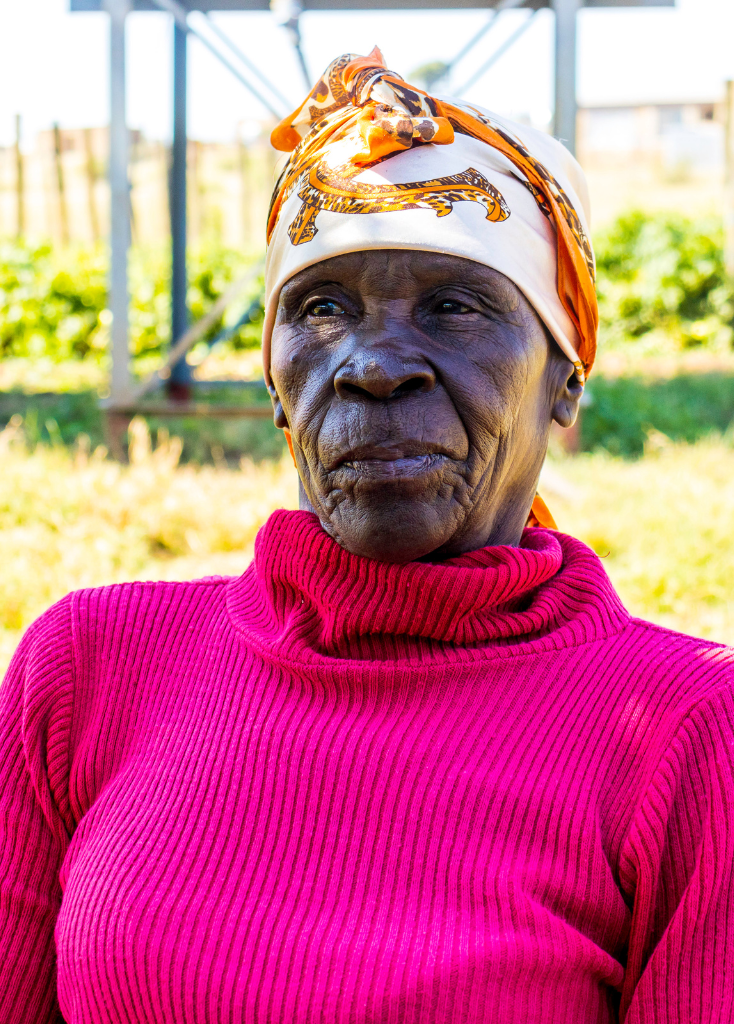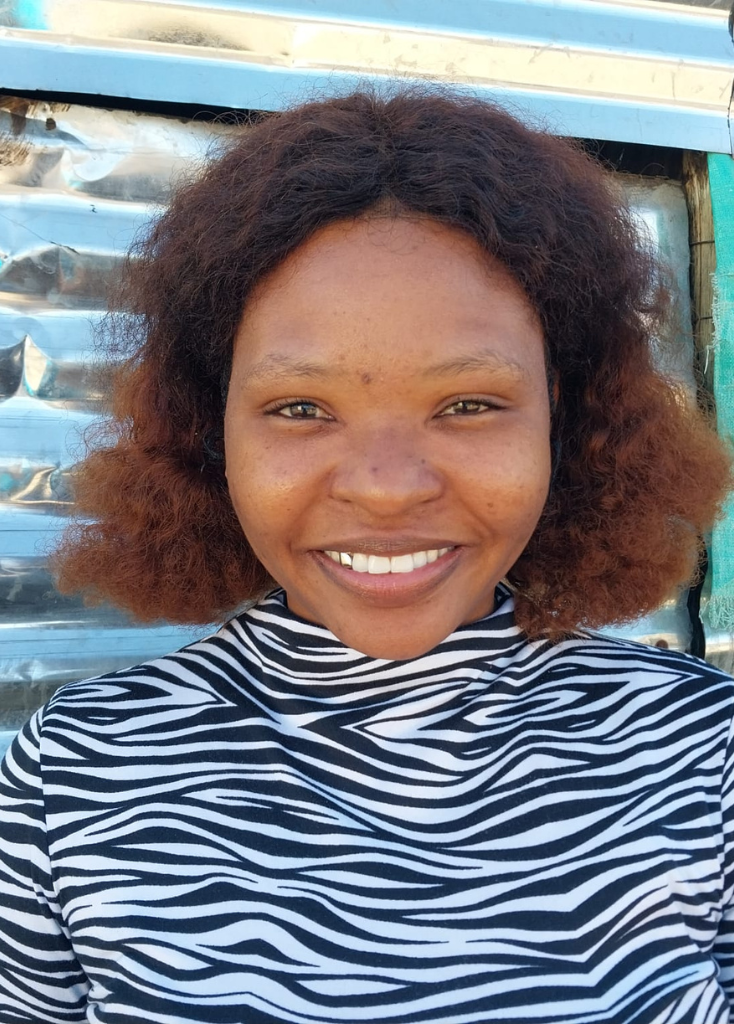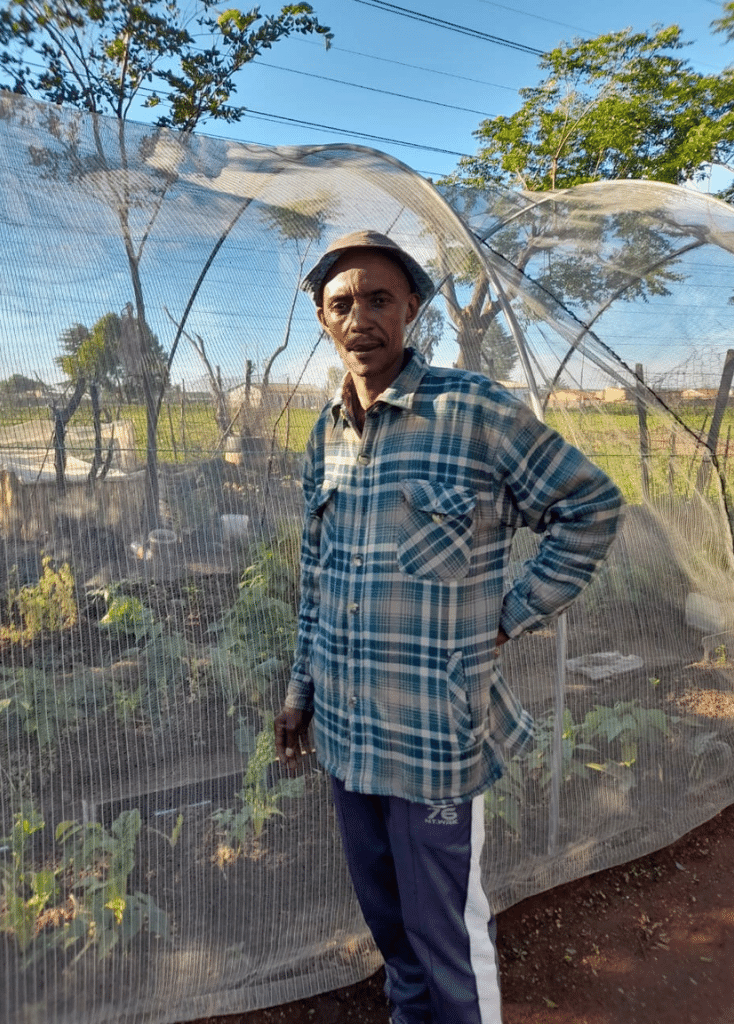
BBL PARTICIPANT: Paulina Magagula, Gamoloi, Limpopo Province
In a Nutshell
Through her participation in SocioTech’s Broad-Based Livelihoods (BBL) strategies to stimulate personal economic activity, Paulina Magagula from GaMoloi, Limpopo has added to her horticultural skills. She has found a community of supportive neighbours, and her orphaned grandchildren are not only benefiting financially and nutritionally from her efforts, but they are also learning from her example.
She says…
I grew up here in the 1950s. My family tried to farm (maize, cotton, dinawa beans) but it was not very successful. We needed water and there was none. Those were difficult days, but children are amazing in that no matter how hard life is, they always find time to play. I remember we played all sorts of silly games. Skipping, jiving, and sometimes fighting. We had a special ritual when you wanted to start a fight. The child who wanted to fight made two mounds of earth and said: “this one is your mother’s breast and this one is my mother’s breast” and then they would kick over the opponent’s mother’s breast. If the child who had been insulted refused to fight, they were a coward.
Even that ability to play when times are tough cannot always carry children through sorrow. I have four orphaned grandchildren. Two are still at school. After their mother passed away, I was stressed, and they were stressed. We were struggling financially and emotionally. The children started saying that they didn’t like school. When I asked them why they said it was: “because we are always failing”. I think that recently things are starting to calm down and I am feeling some hope. They both seem a bit calmer and more able to focus at school. I think it is partly the influence of the garden. No child can study when they are hungry and before I joined the cooperative, we had no food. As an adult, hunger hurts, but we are used to it from many years of suffering. Watching a child go through the pain of hunger for the first time is agony.
"I want them to see that if you work hard, you can improve your life."
I joined the cooperative in 2020. I didn’t want to just sit at home and worry. I can’t just sit and fold my arms while my grandchildren are suffering. Life is still a struggle, but it is a lot better with the support I have found here in the cooperative. We are not only coworkers we are also friends. It is a very supportive space. We listen to each other’s problems, and we care for each other. No one goes home without food. Thanks to the techniques that we have learnt from Mama Di and Baba Cletus, the crops are growing so well. They are beautifully green and they taste so good.
I encourage my grandchildren to come and help me as I work. I think it is good for children to get their hands in the soil and learn where their food comes from. I want them to see that if you work hard, you can improve your life. Even if it is only a little bit of improvement. Every little bit counts. If you grow one cabbage or sell one bunch of spinach or one bag of tomatoes that is one less day of hunger. Even on a day when we sell nothing the support of the cooperative keeps my family alive. When I come here, I know that I will go home with something to eat – some morogo and tomato to make a relish to go with the bogobe (maize meal porridge).










